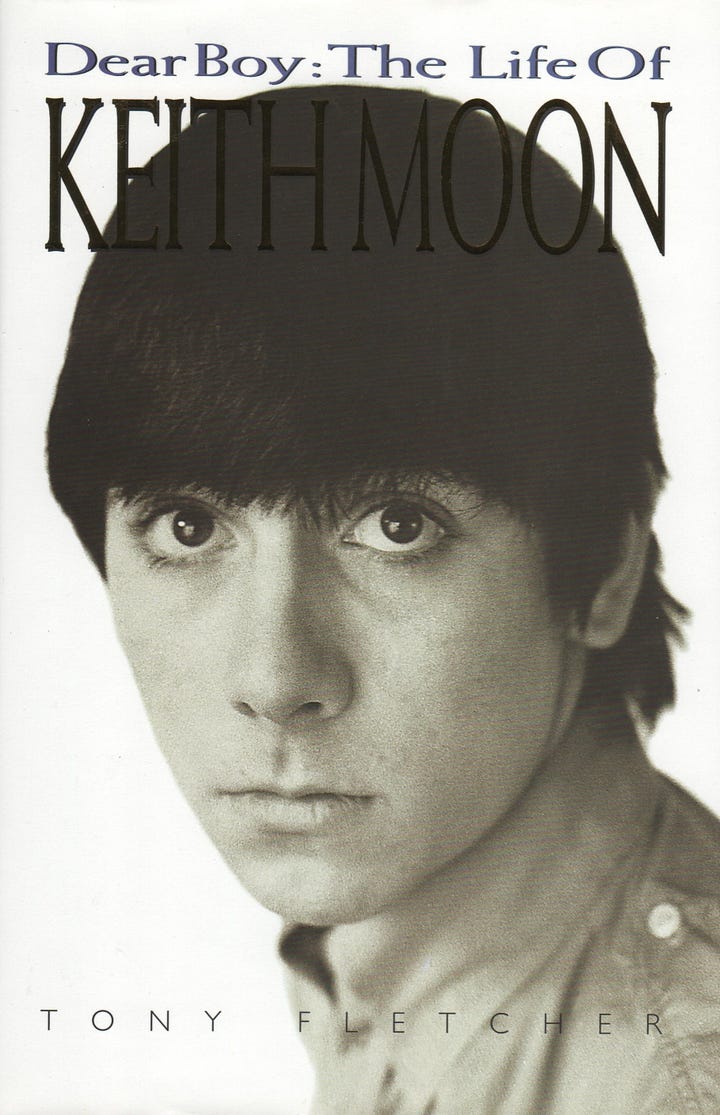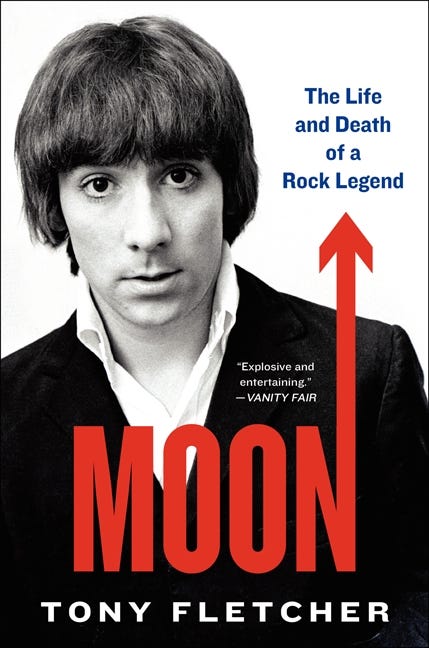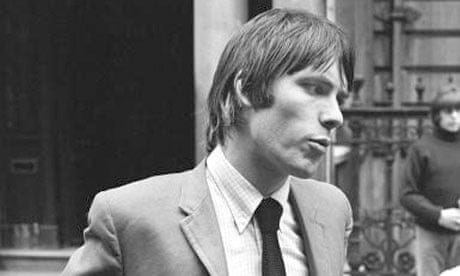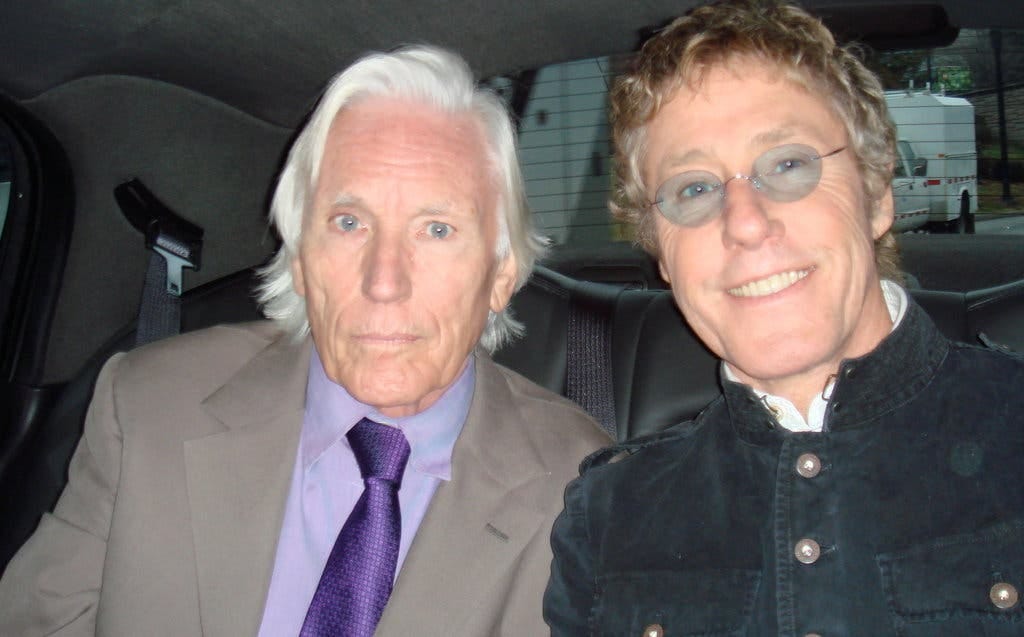"Keith Moon thought he was just this boring arsehole without the madness."
My 1996 interview with The Who's co-manager Chris Stamp
The night of posting this interview with their former co-manager Chris Stamp, I will be going to see The Who one more time, one more time if you know what I mean. The coincidence of them playing the Royal Albert Hall for the annual Teenage Cancer Trust concerts the same weekend as the Fulham-Crystal Palace FA Cup Quarter Final, alongside the fact that I was not confident of finishing up my deceased mother’s affairs before this weekend, and that my generous London host would be over from his Stateside main home for the shows too, meant I had to stay long enough do it. I am looking forward to seeing the stripped-down band once again, and I am always happy to support the Teenage Cancer Trust. I have my own trust that it will be a good night out, especially as I am NOT in the third row centre this year. (Read my report of last year’s TCT concert here.)
It seemed then the right occasion to post another interview from the 100+ in my Keith Moon archives, conducted when researching Dear Boy/Moon, the door-stopping biography published in 1998 (UK) and 1999 (USA) and still on the shelves and selling.


And this interview is a great one. Alongside his partner Kit Lambert, Chris Stamp managed The Who from 1964 through to whenever it was in the mid-70s that they were ousted for… let’s say poor accounting. They were a management team right out of the movies – and indeed, such was their notoriety that they became the subject of a 2014 documentary movie themselves, appropriately titled Lambert and Stamp.

Of the pair, Chris Stamp was the East End fast-talking fast-moving type, much like Adam Faith in Stardust and That’ll Be The Day, a character I always felt was based on him. Kit Lambert, meanwhile, came from a renowned classical musical family, had attended Oxford, been through a harrowing Army experience, and brought what Chris rightly calls the “sophistication.” It’s fair to say that just as The Who were struggling outside their home base as The High Numbers when Lambert and Stamp discovered them (appropriately, while searching for a band to make a film about), so The Who would not have become the success they did without Lambert and Stamp, regardless of their terrible business decisions. Likewise, Stamp insists below that The Who could never have become The Who without Keith Moon.

Because he lived in New York City (as I did at the time) and was up for it, I interviewed Chris Stamp early in the research process. He was doing well, looking good, with a nice Manhattan apartment, working as a psychodrama therapist, totally clean – I’d never seen so many vitamins and other legal life-affirming bottles of tablets in any one place before – and back in business with Roger Daltrey, collaborating on a Keith Moon movie that still has not been made. (I should add that unlike Chris Stamp, who sadly passed away in 2012 , long after Kit Lambert’s messy demise in 1982, the movie is not dead.)
“I didn't really want to see how fucked up Keith was. I kept seeing how fucked up he was, but I didn't really want to see it. I just kept thinking it was something that would right itself.”
As the quote above indicates, Chris was a great interview: forthright, focused, chatty, very much like the persona he had projected back in the management days, and full of love and admiration for Keith. He said a few things that later I would have questioned him on had I conducted the interview later in the process, as they didn’t stand up to more research in the meantime. With one noted exception, those have been excluded from what follows. This 5000-word transcript is available, below, for paid-up subscribers to Wordsmith.
What do you get for $6/c.£5 a month subscription? Not only exclusive transcripts like this one among the many other archived Moon-related interviews I’ve already posted (John Entwistle, Dave Edmunds, Oliver Reed, Larry Hagman, David Puttnam, Alice Cooper, Pete Townshend and more) but access to all the archives all the time, and the monthly Crossed Channels podcast I host with
. Our latest episode, on Slade, went up just this week.You also just get to support independent writing and keep me going here.
And, for only the next two days, if you sign up for an annual subscription, at a 20% discount, you are welcome to a free copy of my 2009 book All Hopped Up and Ready To Go: Music From the Streets of New York 1927-77, postage paid, signed and inscribed should you like. (UK and USA only due to those postal costs: sorry.) More about that offer here.
And with that, off we go.


